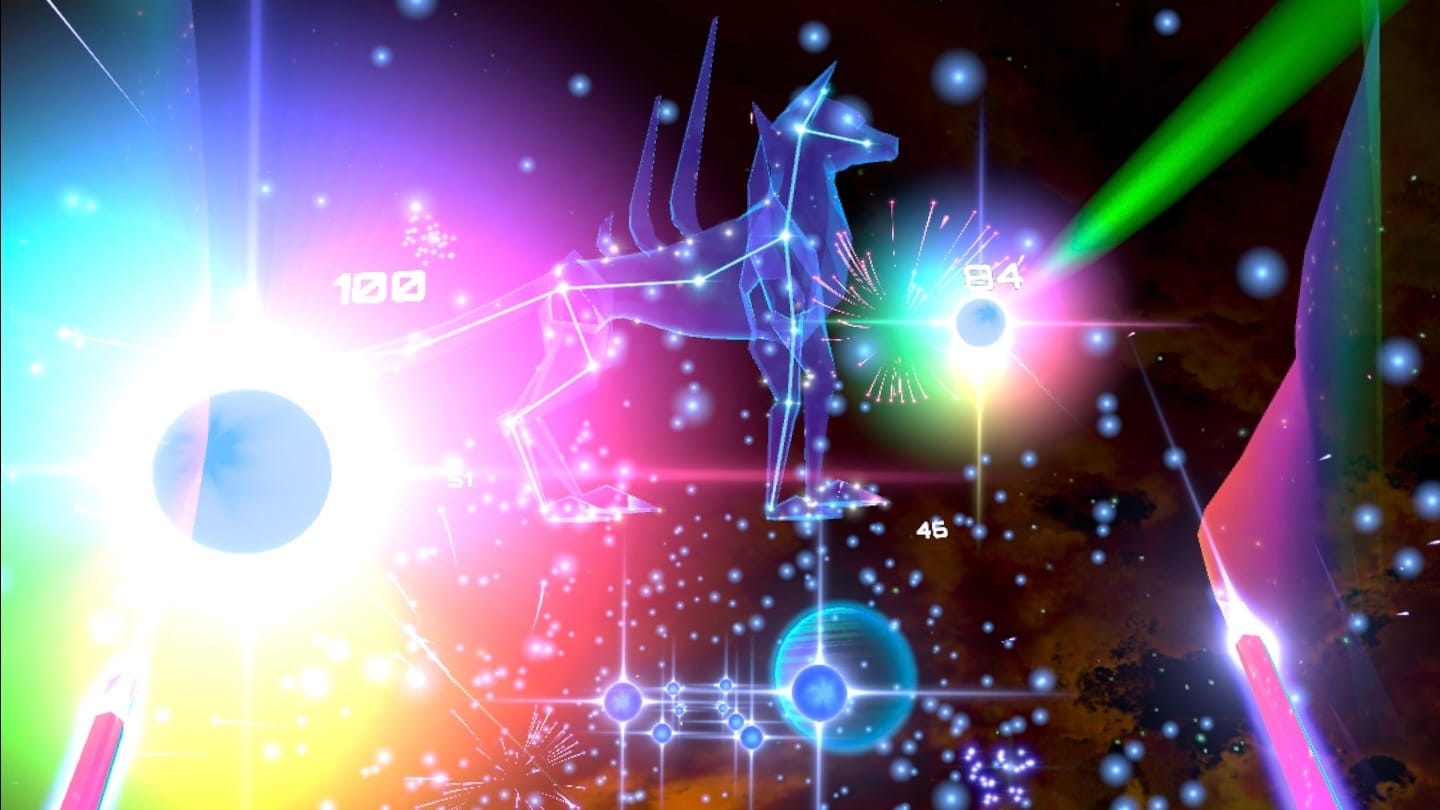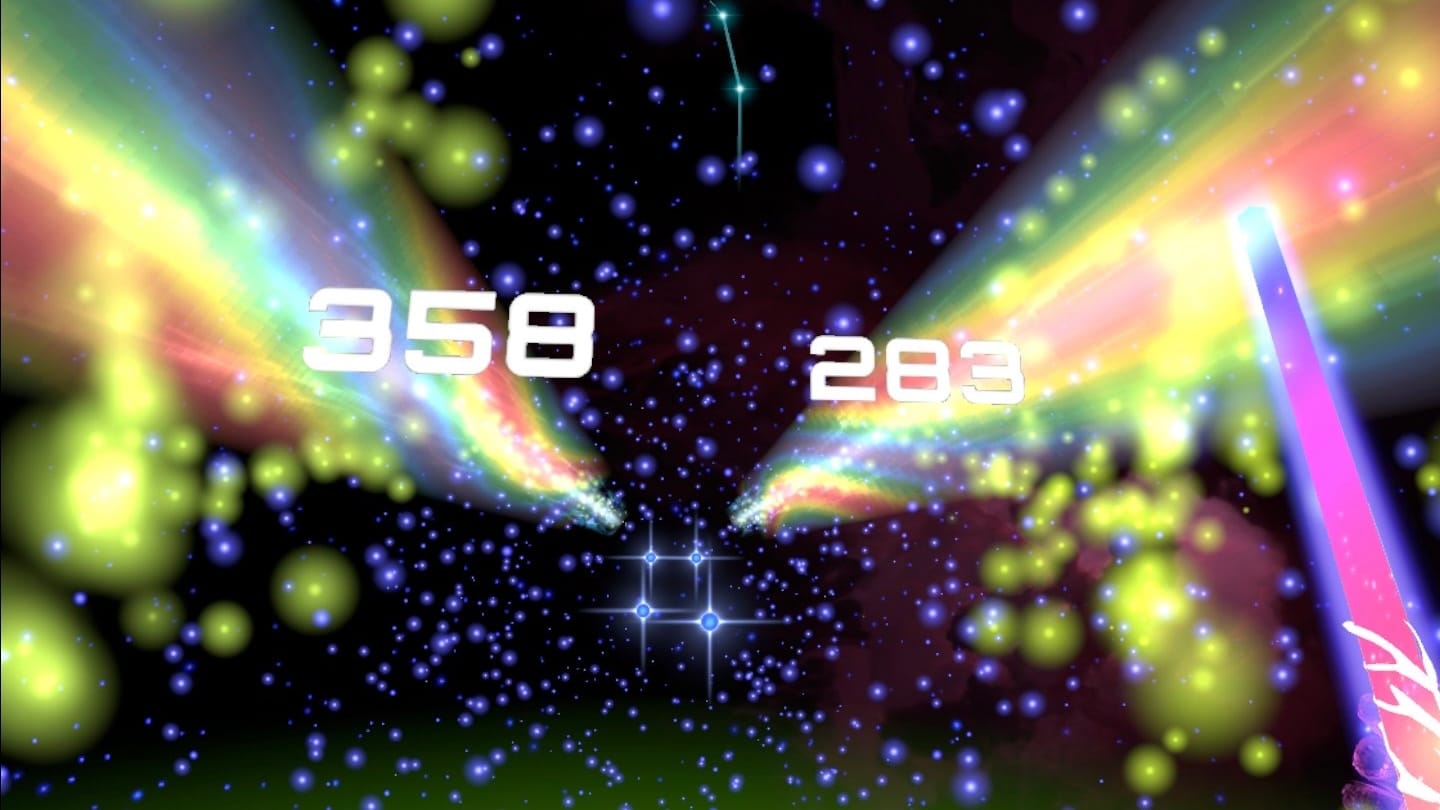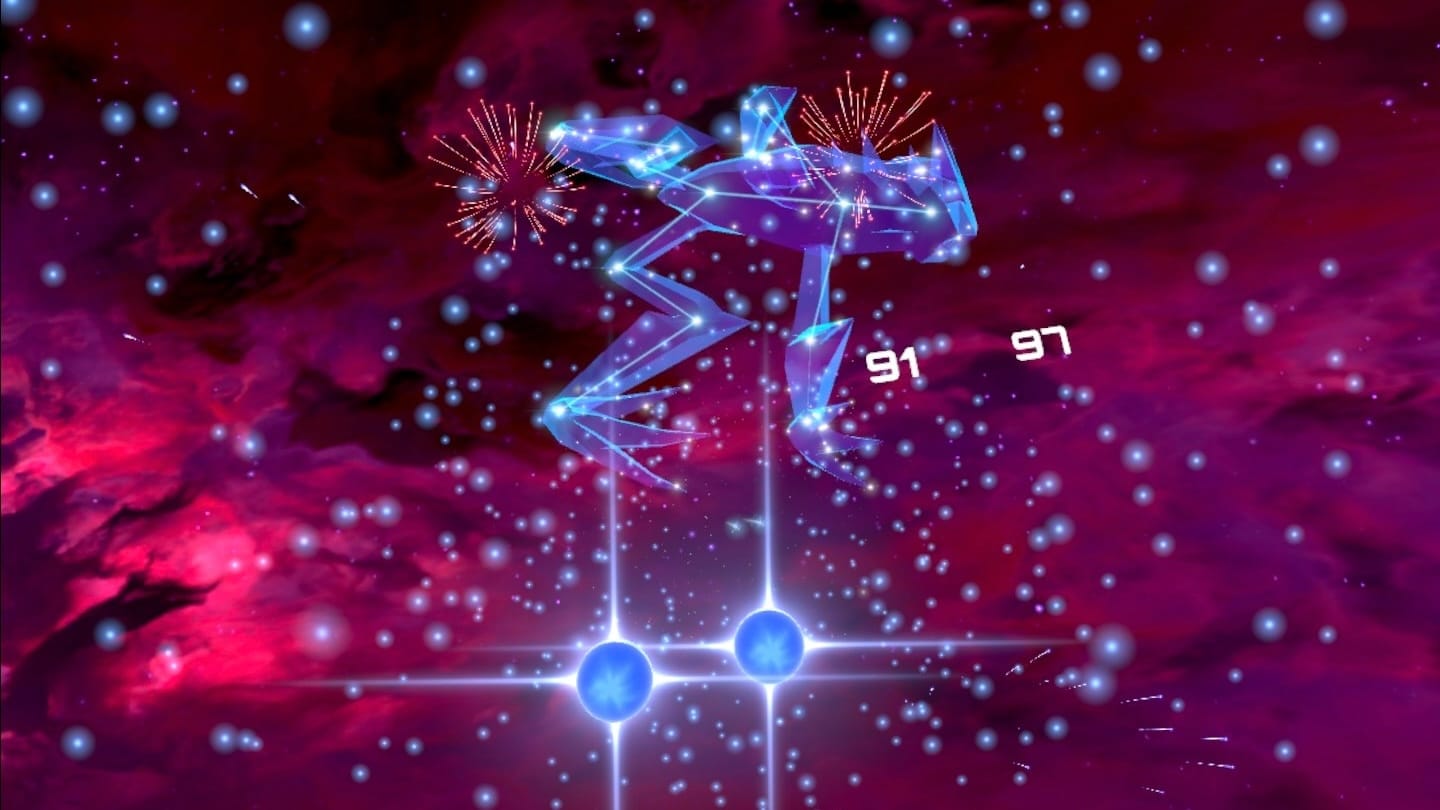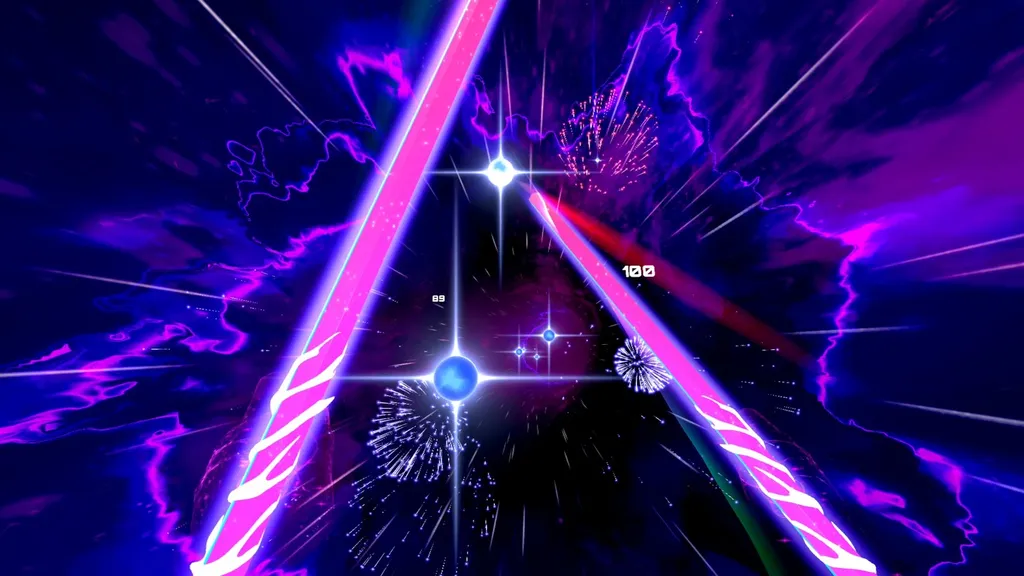The synergy between body and music is key to a VR rhythm game’s success. Starwave may have cracked the code.
When I recently previewed Starwave at Bitsummit, I noted that although I loved what I played during my brief session, the challenge it faces in attaining success is stark. This game must stand out in a genre where Beat Saber is the undisputed king, and few games stand a chance of recognition behind its shadow. How do you compete with a title so ubiquitous that both VR veterans and those who have never tried a headset put the game on a pedestal, not just for the best rhythm VR game but the best VR game full stop?
What is it?: A rhythm game set in space where players hit notes in time to the music to complete constellations.
Platforms: Quest (Reviewed on Quest 2)
Release Date: September 5, 2024
Developer: Tigertron
Price: $24.99
You evolve. For as much ubiquity and community Beat Saber has earned over the years, its core gameplay remains the same since launching in 2018. The saying goes that if it ain’t broke, don’t fix it, but DLC and massive community support for a title with such name recognition mask the fact that the game and wider genre haven't evolved beyond its innovations even six years later.

Much of the core gameplay will undoubtedly be familiar to genre veterans. Wielding rainbow wands, you bat away balls of light in time to the music that explode in the sky like fireworks if you hit them hard enough. The stronger the hit, the more points you score. These balls fly in the direction you hit them, and hitting an asteroid scores bonus points. Beyond that, you have a surprising amount of freedom to hit these notes however you want as long as you match the beat. Occasionally, stardust appears like trails through the night sky, and you hover your wand over to score points.
Starwave feels less like a rhythm game and more like a rhythm odyssey. Priorities are adjusted: you can certainly aim for a new record, and mechanics like asteroids encourage you to aim for high scores, but it never feels like that’s the purpose of entering this interstellar space and attempting these songs. As a genre veteran who always challenges for harder difficulties and higher scores, this is the first time I feel liberated from that pressure, free to live in the moment with the music.
There’s no real risk of failure, so it’s not like you’re facing some grueling challenge to see a results screen. It isn't easy and with only one difficulty, it could easily become too much for those new to the genre. Despite this, there’s a surprising lack of pressure.

This is a rare rhythm game that simultaneously runs both in pace with the music and at your own tempo. The closest comparison is a game like Tetris Effect, which turns a simple premise into something more sonic and visceral, deconstructing it to the emotional core that keeps us coming back or wanting to return to these experiences time and time again. The cosmic setting makes the music feel like a journey through the stars where you are blazing a trail for new frontiers, and new constellations you unlock by completing levels.
Comfort
Starwave doesn't use any locomotion but requires full-body movement. Comfort settings include adjusting the range of motion within which notes will appear in VR, and the height of such notes for those who struggle to raise their hands above their head. You can also add an optional floor marker to note your position within the virtual space, and a Hit Timing reticle.
The aforementioned freedom is key to this. While you are encouraged to hit certain notes a particular way for those bonus points with asteroids, the ability to hit notes in any method you see fit turns the rigidity of a musical beatmap into a canvas for creative expression through song. Waving your dual conductors batons feels like you’re physically throwing the bass of the drum into the universe. I feel elevated from the ground into a new plane of existence as I let my arms float and grace the stardust waves like a paintbrush.
Completing a song feels like coming down from witnessing a completed artwork, with just enough pause before the game automatically plays the next song, bursting onto the scene like a new idea. Even beyond VR, there are few titles like it. Ending the experience forces me to readjust to the reality around me, the expectations of my world having fundamentally shifted following 60 thrilling yet exhausting minutes jumping around the room on my immersive spaceship.

Starwave Review - Final Verdict
Starwave feels unique, offering enough variety across 36 tracks to keep me returning. Further aiding this replayability are the daily voyages, a 10-minute collage of random songs from across the library played sequentially to create a short burst of emotion. If you don’t have time for an extended session, the short voyages are similar to daily quests in a free-to-play mobile game, a burst of serotonin from something familiar before going on with your day. Except this one leaves you slightly sweaty.
I can see this game becoming a part of my routine even if this 36-song selection remains the limit, although space remains for post-launch DLC song packs that could certainly expand the experience even further. That’s something for the future, though. I’d go as far as saying Starwave is one of the best VR rhythm games on the market. If you love music, want to improve your fitness, or simply want to immerse yourself in an experience like no other, the answer is clear.

UploadVR uses a 5-Star rating system for our game reviews – you can read a breakdown of each star rating in our review guidelines.


























